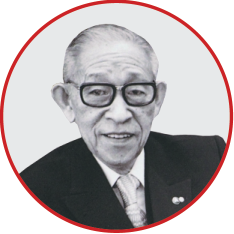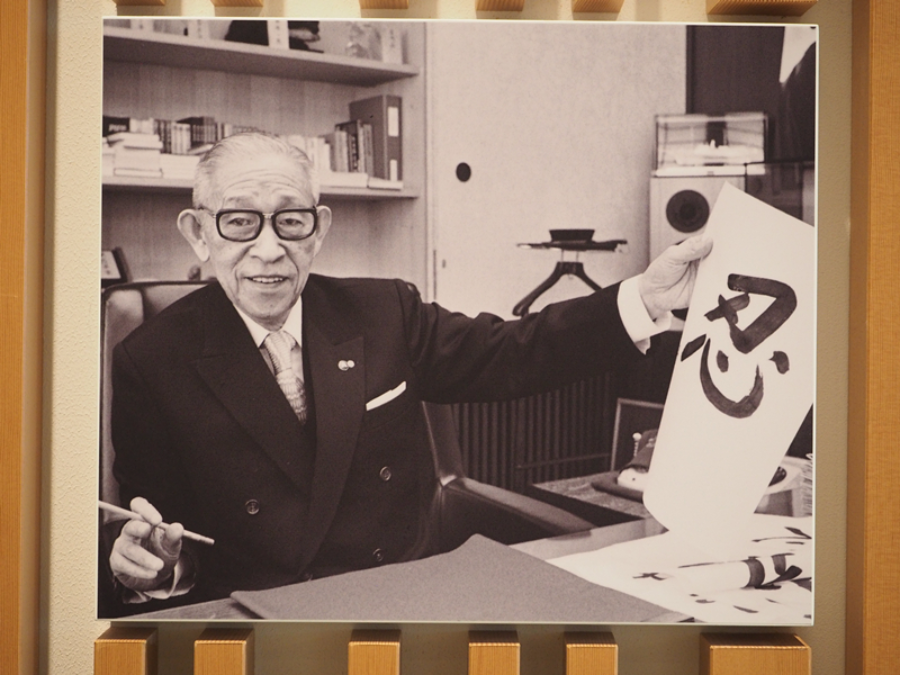
He was born in 1894, the youngest child in a family of 10.
Matsushita was sent to Osaka to be an apprentice in a charcoal brazier shop at the age of 9. With harsh experience in his early days, Matsushita always looked at difficult times with great optimism to learn, improve and strengthen himself. He started his own company, Matsushita Electric, at the age of 22.
He excelled as an innovator and a leader, turning his company into an electronics giant. Matsushita Electric's success led to visits from foreign VIPs such as United States attorney general Robert Kennedy and Indian prime minister Indira Gandhi, and the media also embraced Matsushita. He was featured in Life magazine in September 1954, and appeared on the cover of Time magazine in February 1963, bringing Matsushita Electric to worldwide prominence.
He retired as company chairman in 1973. Five years later, he spent 7 billion yen (equal to about $32 million at the time) of his own money to build the Matsushita Institute of Government and Management in the hope of training future leaders. Its graduates include people working in a wide range of fields, from politics to business, media, research and education.
Matsushita died in 1989 at age 94.
The tour that helped change a nation

"We didn't expect that China could progress so fast. Political stability is a prime requisite, which is the main reason China has achieved so much.
"In ancient history Japan learned a lot from China. Japan and China, as President Xi Jinping says, are neighbors that cannot move away from one another. If we work together, we can achieve great things that benefit both us and the world at large. On the other hand, if we are at loggerheads it spells disaster for us and the rest of the world."
Sadaaki Yokoh, head of Panasonic's China and Northeast Asia section, said he is confident about China's further growth and sees more opportunities for Panasonic as China continues to develop.
"We want to use Panasonic's environmental protection technologies to help build a beautiful China," Yokoh said.
"And we also want to serve every single Chinese person with our products, promoting collaboration between our two countries."
Panasonic's business expansion in China has, in one way or another, encouraged the Chinese government on the road to reform.
The company set up factories across China in the 1990s and wanted to have a China-based holding company to take care of all its China subsidiaries, those involved in development, manufacturing, distribution and after-sales service.
Panasonic's request to set up the holding company was a difficult issue for China, where fears of capital outflow meant the market was closed to foreign capital businesses. Thanks to Panasonic's persistent lobbying, it was allowed to set up Matsushita Electric (China), better known as CMC, in 1994.


